 W
WLeyla Gülefşan Achba was an Abkhazian princess. She was a lady-in-wating to Nazikeda Kadın, wife of Mehmed VI, the last Sultan of the Ottoman Empire. She is known for writing memoirs, which give details of the sultan's court life and was the first Ottoman court lady to write memoirs.
 W
WHarutiun Alpiar was an Ottoman Armenian journalist and humorous writer.
 W
WAram Andonian was an ethnic Armenian journalist, historian and writer.
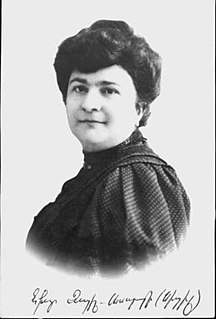 W
WZabel Asadour better known by her literary pseudonym Sibil was born as Zabel Khanjian, July 23, 1863 in Üsküdar district, İstanbul - June 19, 1934), was a famous Ottoman Armenian poet, writer, publisher, educator and philanthropist.
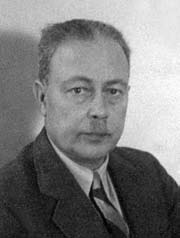 W
WFalih Rıfkı Atay was a Turkish journalist, writer and politician between 1923 and 1950.
 W
WReteos Berberian, also known as Reteos Perperian, was an Ottoman Armenian educator, pedagogue, principal, writer, poet, and founder of the prestigious Armenian Berberian Varjaran school.
 W
WMari Beyleryan was an Armenian feminist activist, writer and public figure and a victim of the Armenian Genocide.
 W
WErukhan was the pen name for Yervant Srmakeshkhanlian, was an Armenian writer of the late 19th and early 20th century. He was arrested, tortured, and killed by the Turkish authorities during the Armenian Genocide.
 W
WSami bey Frashëri was an Albanian writer, philosopher, playwright and a prominent figure of the Rilindja Kombëtare, the National Renaissance movement of Albania, together with his two brothers Abdyl and Naim. He also supported Turkish nationalism against its Ottoman counterpart as well as laicism against theocracy.
 W
WMelkon Hrand Guirdjian was a renowned Armenian writer, professor, and civic activist.
 W
WHasan Fehmi Bey was an Ottoman journalist, who was the editor-in-chief of Serbestî, an Ottoman newspaper owned by Mevlanzade Rifat Bey, in which he wrote articles against the newly emerging Committee of Union and Progress. He was murdered by unidentified assailants on the evening of April 6, 1909, as he was crossing the Galata Bridge in Istanbul.
 W
WHovhannes Hintliyan was an Armenian teacher, pedagogue, publisher, and educator. He was the founder of Nor Tbrots, a prestigious Armenian school in the Pangalti district of Constantinople.
 W
WHovhannes Hisarian was an Ottoman Armenian writer, novelist, archeologist, editor, and educator. He was considered the first Armenian romantic novelist.
 W
WFahmi Bey al-Husseini was the mayor of Gaza, his hometown, from 1928 to 1939 while Palestine was under the British rule.
 W
W'Abd al-Rahman al-Kawakibi was a Syrian author and Pan-Arab solidarity supporter. He was one of the most prominent intellectuals of his time; however, his thoughts and writings continue to be relevant to the issues of Islamic identity and Pan-Arabism. His criticisms of the Ottoman Empire eventually led to Arabs calling for the sovereignty of the Arab Nations, setting the basis for Pan-Arab nationalism. Al-Kawakibi articulated his ideas in two influential books, Tabai al-Istibdad wa-Masari al-Isti’bad and Umm Al-Qura. He died in 1902 of “mysterious” causes. His family alleged that he was poisoned by Turkish agents.
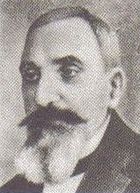 W
WDiran Kelekian was an Ottoman Armenian journalist and professor at the Darülfünûn-u Şahâne. He was editor of two newspapers, Cihan and Sabah. He was murdered in the Armenian Genocide.
 W
WAli Kemal Bey was an Ottoman-born Turkish journalist, newspaper editor, poet and a liberal-leaning politician, who was for some three months Minister of the Interior in the government of Damat Ferid Pasha, the Grand Vizier of the Ottoman Empire. He was murdered by a mob during the Turkish War of Independence.
 W
WShavarsh Krissian was an athlete, writer, publicist, journalist, educator, and editor of Marmnamarz, the first sports magazine of the Ottoman Empire. He is considered one of the founders of the Armenian Olympics and the Homenetmen Armenian sports organization. He was a victim of the Armenian Genocide.
 W
WLevon Larents (Kirisciyan) was an Armenian writer, translator, journalist, editor, novelist, poet, and teacher. He was an editor of many newspapers around the world and the founder of many others. During the Armenian Genocide, Larents was deported to Ankara and then killed.
 W
WNigâr Hanım was an Ottoman poet, who pioneered modern Western styles in a feminine mode. She is a major figure in post-Tanzimat Turkish poetry.
 W
WYervant Odian more known by his satire name "Comrade Panchooni", is considered to be one of the most influential Armenian satirists, along with the roughly contemporary Hagop Baronian. Odian was born into one of the most affluent families in what was then Constantinople. His Paternal Uncle Krikor Odian (1834-1887) was a respected political figure and was even one of the founders and writers of the Armenian National Constitution. His father too was a writer, along with having been a political diplomat and possibly most unique of all, a translator of Victor Hugo's. Odian's mother was indeed wealthy on her side of the family as well. Odian's writings, which include novels and short stories, often humorously point out humanity's vices. Odian's heritage played a major role in some of his major themes, those being Armenian-Turkish relations as well as Muslim-Christian relations. Interestingly enough, Odian's grandfather Yazedje Boghos Agha was from Palu, Turkey, a town notable for its massive Armenian population, a major part of its destruction during the Armenian massacre events of the 1894-1896. He had the unique ability to conceive of and write stories at any given instant. In a 2013 piece written by Eddie Arnavoudian, he proclaimed "Even if elsewhere equalled in modern Armenian literature, Odian's exposure of the establishment's putrid core has certainly not been bettered". Odian's writing styles are often described as extroverted, as if his is removing his persona from the piece in order to best portray the truth. Though Odian was surrounded by nearly all of the other great Armenian writers of his time, and friendly with many of them, their writing styles never altered his own, always staying true to his voice.
 W
WHagop Oshagan, was an Armenian writer, playwright, and novelist. Among his many novels are the trilogy To One Hundred and One Years, The Harlot, and his best-known work, Remnants, parts of which have been translated into English by G.M.Goshgarian.
 W
WKegham Parseghian, was an Armenian writer, teacher, editor, and journalist.
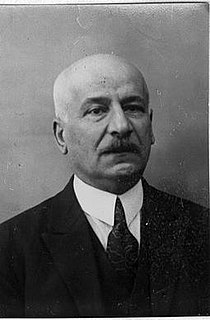 W
WLevon Pashalian, was an Armenian short story writer, journalist, editor, novelist, and politician.
 W
WSmpad Piurad was an Armenian intellectual, writer and public activist. He was murdered during the Armenian Genocide.
 W
WAhmet Rıza Bey was an Ottoman-born Turkish politician, educator, and a prominent member of the Young Turks, during the Second Constitutional Era of the Ottoman Empire. He was also a founding member of the Party of Union and Progress. He represented the intellectually strong wing of the party, the opposite of the nationalist wing.
 W
WJacques or Jack Sayabalian (Paylag) was an Armenian writer and poet who was also an interpreter for the British Consul in Konya between 1904 and 1909, then vice-consul for a year and a half. He was also a member of the Armenian National Assembly representing his birthplace of Konya. After 1909, he became a journalist in Constantinople. During the Armenian Genocide, Sayabalian was deported to Ankara and then killed.
 W
WParsegh Shahbaz was an Ottoman Armenian lawyer, political activist, journalist, and columnist. He was a member of the Armenian Revolutionary Federation. During the Armenian Genocide, Shahbaz was deported to Çankırı and then Harput where he was killed.
 W
WGegham Ter-Karapetian (1865-1918), better known by his pen name Msho Gegham, is a renowned Armenian writer and politician.
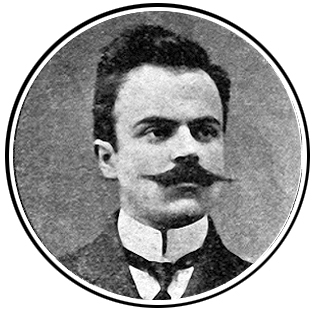 W
WHagop Terzian was an Armenian writer and pharmacist who lived in the Ottoman Empire. The theme of much of his writings was Armenian life and heritage in the region of Cilicia. He published a five volume eye-witness account of the Adana massacre. This publication was confiscated by Ottoman authorities but has been preserved. The entire work was republished by the Gomidas Institute in 2009. Terzian was arrested on 24 April 1915 at the start of the Armenian Genocide, deported and eventually murdered.
 W
WTovmas Terzian was an Armenian poet, playwright, and professor.
 W
WTlgadintsi or Tlkatintsi, Hovhannes Harutiunian was an Armenian writer and teacher noted for his leading role in rural literature. He is credited with giving the first authoritative response to a call from Constantinople's Armenian intelligentsia, issued in the early 1890s, for writing firmly rooted in the village life of historic Western Armenia. Tlgadintsi's unique realist works range from probing the darkest corners of village life to revisiting cherished moments of childhood. Through his esteem as a mentor and his power as a writer he opened the way for a new generation of important writers such as Rupen Zartarian, Peniamin Noorigian, Vahé Haig, Vahan Totovents, Hamasdegh, and others.
 W
WKrikor Torosian was an Armenian satirical writer, journalist, and publisher. He started his own satirical journal entitled Gigo, which became popular among the Armenians in Constantinople. He is also known for writing an illustrative encyclopedia. He was a victim of the Armenian Genocide.
 W
WHalid Ziya Uşaklıgil was a Turkish author, poet, and playwright. A part of the Edebiyat-ı Cedide movement of the late Ottoman Empire, he was the founder of and contributor to many literary movements and institutions, including his flagship Servet-i Fünun journal. He was a strong critic of the Sultan Abdul Hamid II, which led to the censorship of much of his work by the Ottoman government. His many novels, plays, short stories, and essays include his 1899 romance novel Aşk-ı Memnu, which has been adapted into an internationally successful television series of the same name.
 W
WAhmet Emin Yalman was a Turkish journalist, author and professor. Yalman was a liberal and opposed the spread of the Nazi ideology in his home country.
 W
WKrikor Zohrab was an influential Armenian writer, politician, and lawyer from Constantinople. At the onset of the Armenian Genocide he was arrested by the Turkish government and sent to appear before a military court in Diyarbakır. En route, at a locality called Karaköprü or Şeytanderesi on the outskirts of Urfa, he was murdered by a band of known brigands under the leadership of Çerkez Ahmet, Halil and Nazım some time between 15 July and 20 July 1915